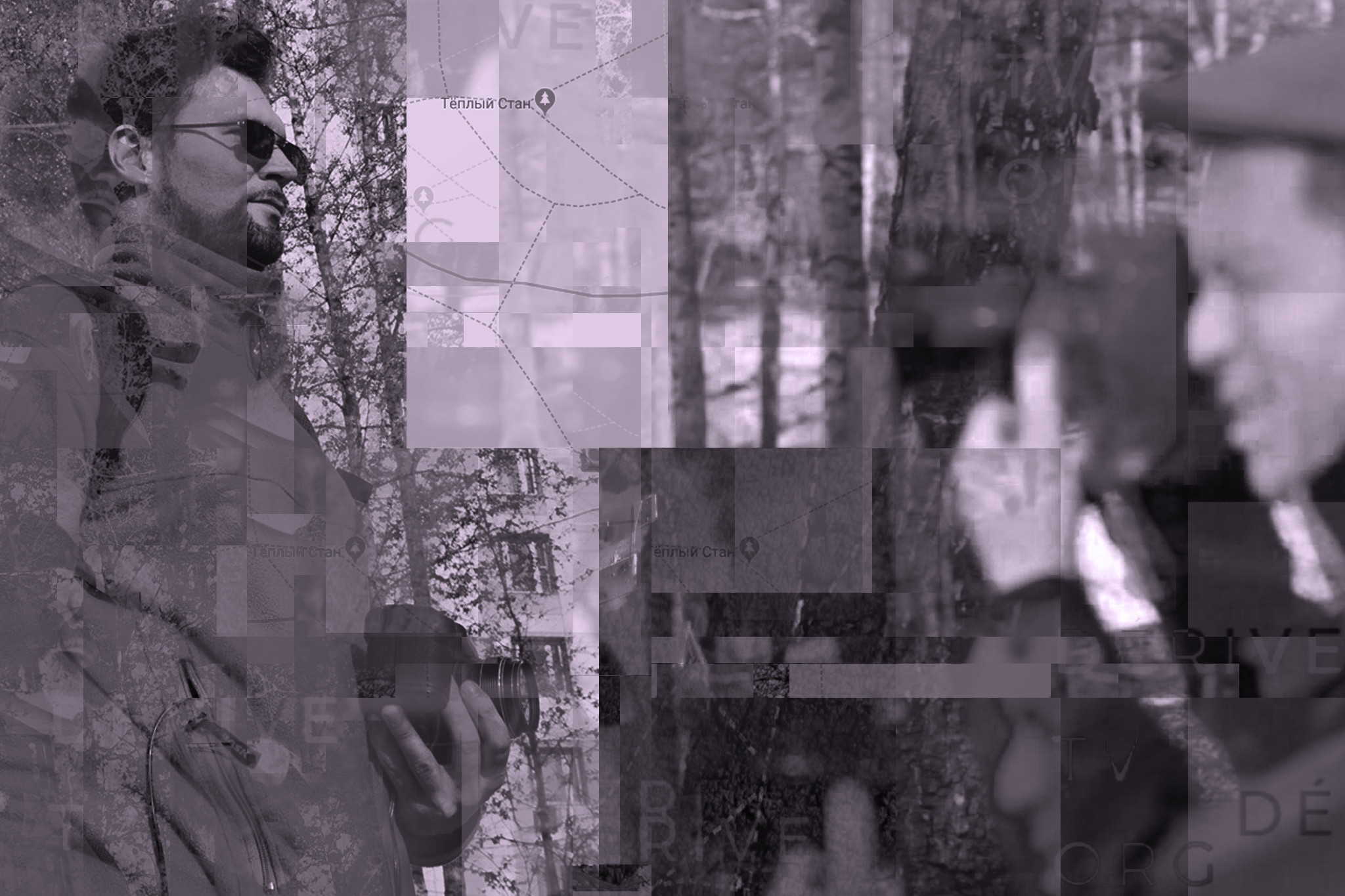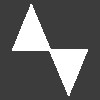Comminiqué of a Meeting of the Derivetv's Editorial Board on the Perspectives of (Post)-Radio and Television Broadcasting in the Second Semester of 2019

Derivetv appeared at the very moment when on the square in front of the MACBA (one of the most important contemporary art centers not only for Barcelona, but internationally) a smartphone was stolen from one of the co-organizers (Dmitry Stepanov), which by that time had already been used many times to bring online drifts around Barcelona and Basel. The lack of the smartphone and the ability to purchase a new one for broadcasting put a formal (or technical, to be more precise) restriction in front of the streamer, which led to a new form in that situation: streaming the previously recorded videos to Facebook. A radical change in the approach to streaming, as it turned out, opened up the prospect of creating online television for co-organizers of Derivetv.
During one of these broadcasts, Alexander Minchenko, who turned his attention to the sound and television component, suggested launching a project for delayed online streams on Facebook, which, on the one hand, would allow to implement and deploy the method (live broadcasts of pre-recorded data), comprehending the possibilities of the medium and working with it; on the other hand, he would create a platform for showing those videos that had not appeared on the screens of a large institutional world coloring the artistic space to fit its needs and self-deploying in time, as if that very spirit, who is bored by everything except s/herselves.
Many video works really have no place to be shown due to the fact that the situation of the show requires an event that would draw attention lines to itself. The presence of such an event in the contemporary conditions is problematic, due to attention dispersion and not-getting-to-the-point because of the enormous speed and amount of information around us.
Many of the works already shown on DeriveTV have never been shown anywhere, and are unlikely to be. Those that are uploaded to online services and platforms, or “published”, are simply drowning in the speed and volume of insane information flows. And the truth is: no one watches artworks on Youtube; password-protected videos on Vimeo are uploaded only in order not to be sent to the next festival — just because it is impossible to force yourself to do anything (and then do nothing) to show yourself in the world of great art.
Art, which requires itself to be shown, needs an event, which means a sociality in that this event can happen and unfold. That is why our view focused precisely on facebook (and vk.com, etc.) as an environment where various communities reach their assembly points, in whose space the event of showing a video work can be realized. Facebook and Vk“s alert mechanisms work in such a way that DeriveTV”s existence and activities are brought to the surface of attention, where they cannot go unnoticed. These social networks provide quite a totalitarian mechanisms, shaping the informational behavior of their users and modeling the attention space around them. However, in our opinion, this mechanism is still subservient to work with in order to create the very porosity through which the power can flow off.
From the very beginning, we were aware that easily perceptible border between open and closed access for one or another media product (in our case, video) no longer exists. Some video works can be seen at large solo exhibitions, or video works created by widely known masters of contemporary art, which everyone knows about, usually remain either under “restricted access” or “access by reference” limitations, and those works that by virtue of their authors posted in public and openly anywhere on Youtube will never be seen by anyone, and if they do, then dry numbers, such as "27 views" or "27 000" views (compared to the multimillion hit by Despacito) will say nothing about the life of one or another video after its uploading.
There is no video, no video work outside the event of exhibition, the show. A wonderful genre — “video for your own hard drive” — although being maintained by people of very noble spirit, nevertheless speaks more about the symptom of the disease than about its nobility. First, on the symptom of a certain disease in the field of contemporary art where mechanisms and places for presenting self-produced videos work very poorly. We do not want to declare any rotting tendencies: in the end, there are film and video art festivals with free participation, but it seems to us the audience that watches videos and films at these festivals is quite specific and narrow, often being limited by actors of the artistic field, inside which these festivals happen. Here we just want to recall the existence (to varying degrees) of certain problems, which are difficult to deny.
Considering all mentioned above, of course, we wanted to try to create such a field in which the situation of the show could be built in a new way. The live broadcast in FB and VK is still a virtual theater scene that suddenly unfolds in one of the areas of this online space. Online space which has long been checked by its users every 5 minutes, and free surfing users can happily connect to watching a video — even for a short period.
At the same time, we deliberately refused to store videos in the DeriveTV group so that viewers would not be able to return to watching them later, or, more precisely, postpone them, that actually means postpone to indefinite times that will never occur at all.
Oddly enough, this approach, which makes each DeriveTV video viewing activity unique, turned out to have opened an ecological perspective as well. Refusing to store anything, and pointing to this, DeriveTV wants to talk about the overflow of virtual space with petabytes of data, which arises only because there is a free possibility for its emergence — but there are very few reasons for it.
DeriveTV is trying to structure the field of social networks users' attention in such a way as to begin to see moments of escape and possibility of omission in the array of stored data, thus opening the possibility for restructuring ways of interacting with information on the Internet.
Perhaps everything written here appears to be too pathetic, and we are neither strong believers in all of this and nor firmly convinced of something of this too. For us, the openness of perspective is important, as on the edge of which, like a cloud, looms the possibility of something else, something different in relation to what we already have now. Maybe at the edge of this perspective only aerial materialization of phantasms exist — the same clouds that about to melt. However, being under the influence of these objects, we recall the path from the abstract idea to concrete things, the path of materialization, the path of production.
(The text of the Communiqué on russian:
https://syg.ma/@derive-tv/kommiunikie-po-itogham-vstriechi-riedkollieghii-derivetv-o-pierspiektivakh-post-tielieradiovieshchaniia-vo-vtorom-polughodii-2019-gh)
